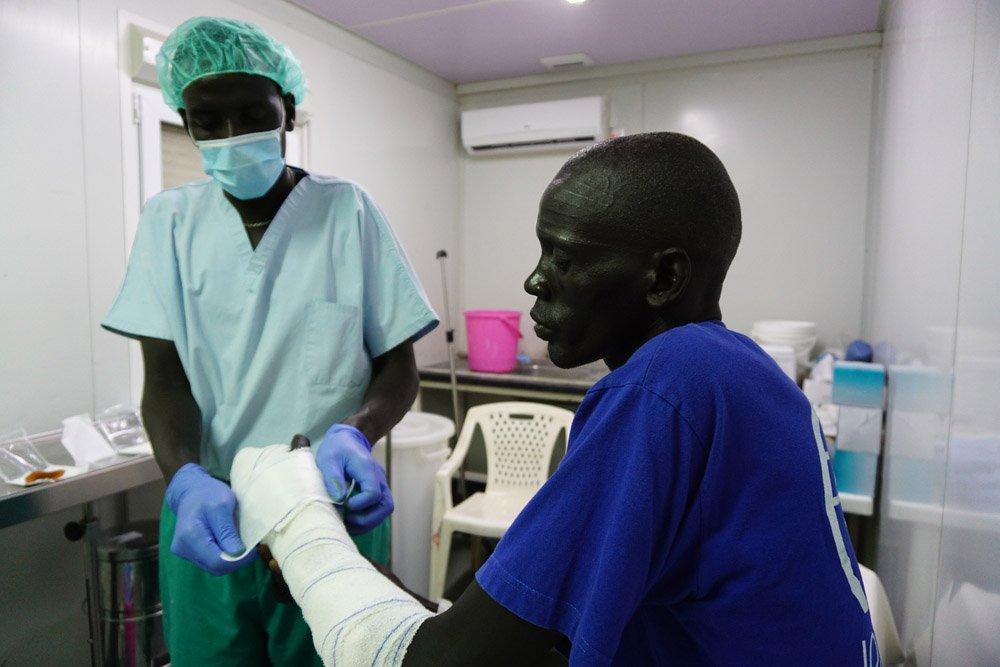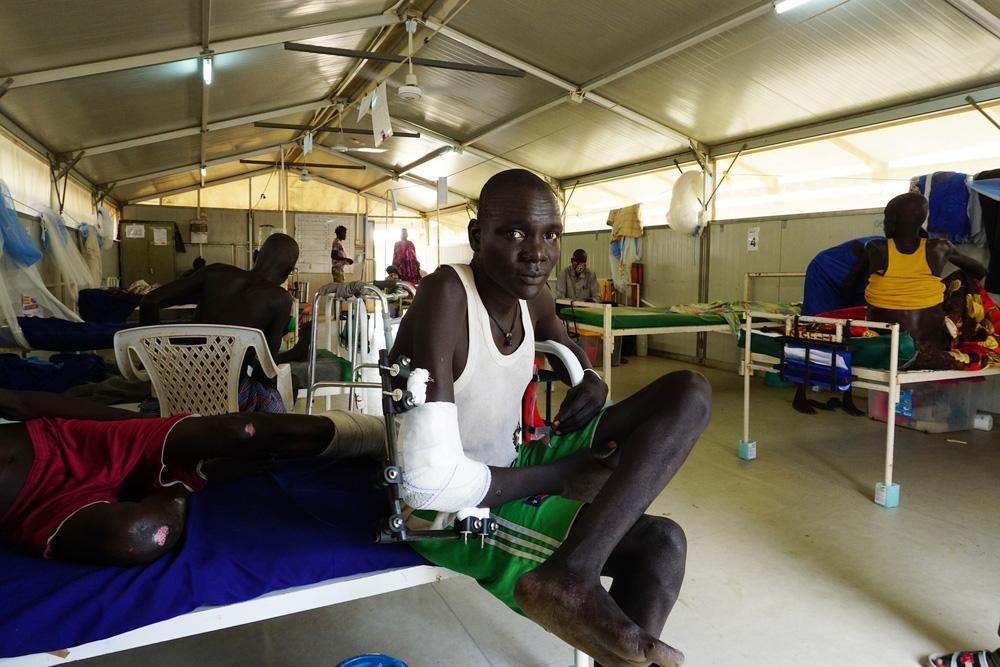After months of bitter inter-communal clashes, fighting has continued to sweep across Jonglei and the Greater Pibor Administrative Area in South Sudan.
Our Doctors Without Borders (MSF) teams have treated over 100 war-wounded civilians and evacuated dozens for urgent surgery. The latest wave in violence, which started in early June and ended mid-August, has left tens of thousands of people displaced in the bush in need of healthcare, as well as food, clean water and sanitation and basic shelter.
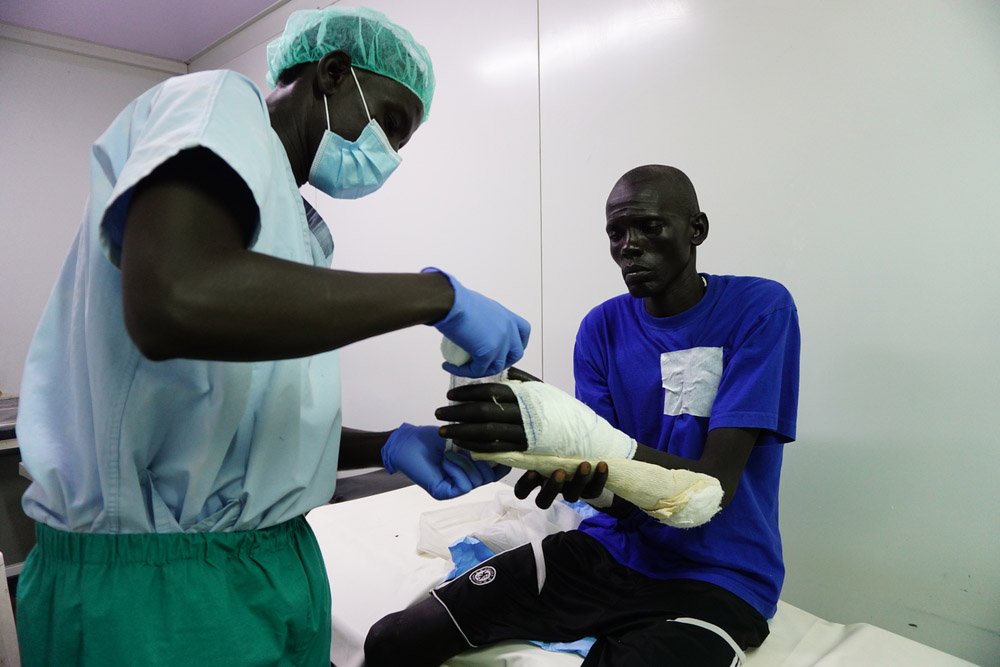
Over just one week, between 29 July to the beginning of August, the MSF medical team in Pieri received an influx of 102 war-wounded patients, the youngest just 15-years-old. A further 11 patients were treated for gunshot wounds at the outpatient emergency response in Pibor relaunched on 9 August.
Of the 11, six patients, including two women, two men and two children one aged only 3-years-old, were evacuated for specialised treatment. A further 36 patients were referred for emergency surgery to the MSF hospital in the Bentiu Protection of Civilians (PoC) site and Juba.
“The numbers of patients were staggering, putting significant pressure on our medical teams. At this moment our hospital in Bentiu where the most serious patients were being referred to was already stretched for bed capacity due to a peak in malaria cases. However, there is an extremely limited number of facilities within the country that can deal with such numbers of injured and critical surgical interventions,” said Tila Muhammad, MSF Head of Mission in South Sudan.
Rains are also hampering the evacuation of critical cases to secondary health facilities as dirt roads turn to mud and become impassable. Yet even evacuation by air is also difficult with heavy rains making the airstrip unlandable, leaving previously referred patients stuck in Bentiu hospital and occupying beds needed for the wounded. Additionally, restrictions from COVID-19 continue to slow down the speed at which MSF can safely give consultations and evacuate patients, as well as send supplies and deploy key staff in these areas aggravating an already volatile situation.
MSF resumes activities in Pibor
MSF commenced an emergency response in Pibor on 11 August, nearly two months after activities were suspended due to immense restrictions, directly and indirectly, related to the COVID-19 outbreak and rife violence. MSF relaunched the emergency outpatient primary health care activities in the centre of Pibor town so that it may be easily accessed by both host and internally displaced populations.
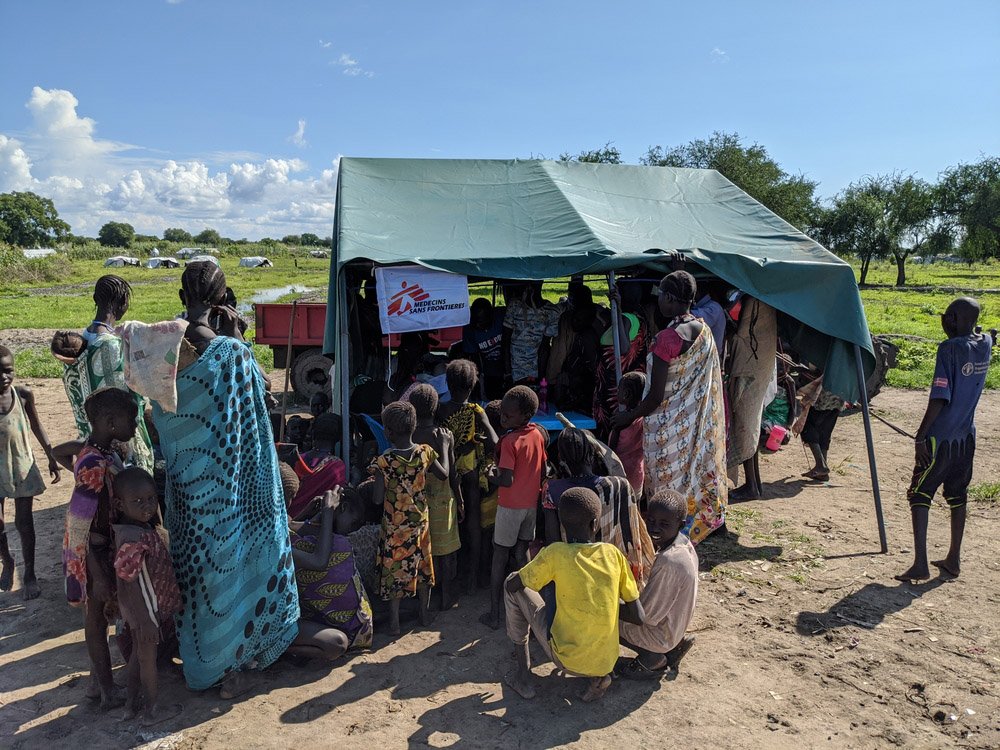
“We are relieved to be finally providing primary health care at a time in the year when normally this community suffers from malnutrition in the lean season, and high rates of water-borne diseases and malaria at the peak of the rainy season,” said Josh Rosenstein, Emergency Coordinator for MSF in Pibor. “But equally, MSF is disheartened and disturbed to hear testimonies from our patients and our staff about the impact the violence of the past months has had on people. Although security is returning, the plight of people will be extremely harsh still for weeks to come as many have lost family, their homes, socio-economic insecurity, dignity and basic access to health care.”
One young mother shared her experiences while being admitted to the clinic: “We have been living a miserable life. This all started in February, and we would have never expected this situation to last for long…I ran into the bush with my sick three months old daughter. She was sick and died in July. Today is the first time that I have had access to a healthcare facility since February.”
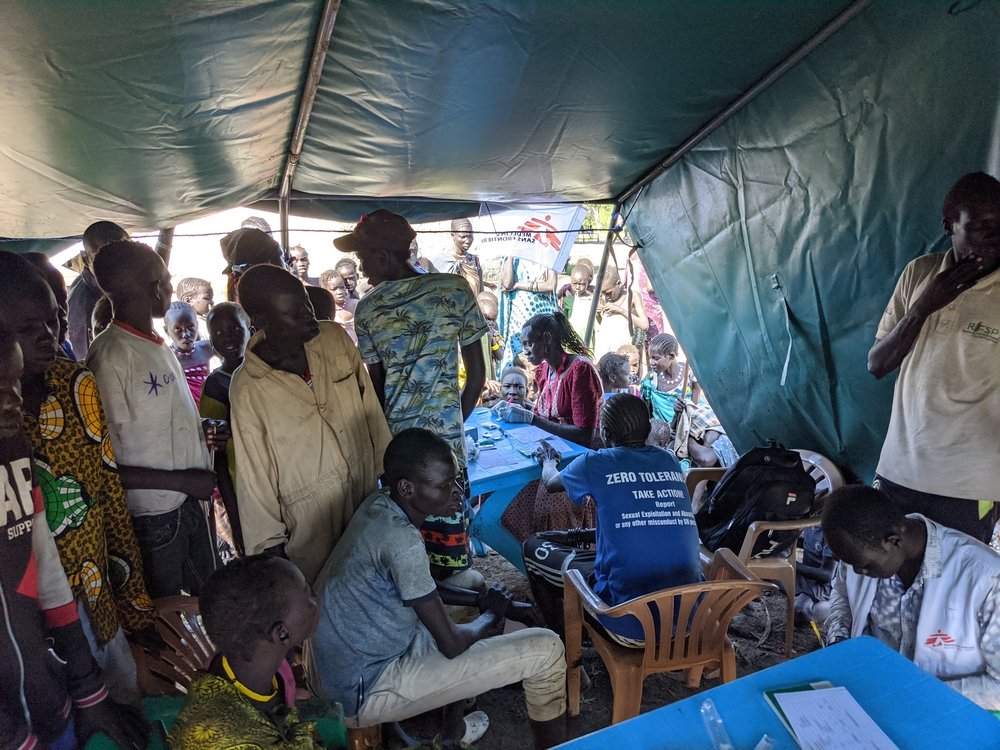
MSF has also started mobile clinics, reaching areas around Pibor whereby people might not have access to healthcare in the town centre. So far MSF has done over 1,500 out-patient consultations and provided 292 pregnant women with antenatal care.
“What it comes down to is the vast majority of the populations of the area need some fairly basic needs after a pretty extreme and precarious year for them. Meeting these needs requires a serious effort on the part of humanitarian actors, but also on the part of all community members and civil authorities ensuring unhampered and safe access for emergency assistance to happen,” said Rosenstein.
MSF calls upon all actors to urgently prioritise delivering the much needed humanitarian assistance to this population and parties to the violence must respect the safe delivery of emergency humanitarian relief by aid workers.
MSF in South Sudan
MSF has been working in South Sudan since 1983. The medical humanitarian organisation currently runs 15 projects in six states: Aburoc, Akobo, Agok, Bentiu, Aweil, Fangak, Lankien, Leer, Maban, Mundri, Malakal, Pieri, Pibor, Yei Ulang and additional COVID-19 emergency operations in Juba. MSF responds to emergencies, including targeting internally displaced persons in the UN Protection of Civilians (PoC) sites, alarming nutrition situations and peaks of disease such as measles, malaria, acute watery diarrhoea and kala-azar, in addition to providing basic and specialist healthcare services.
